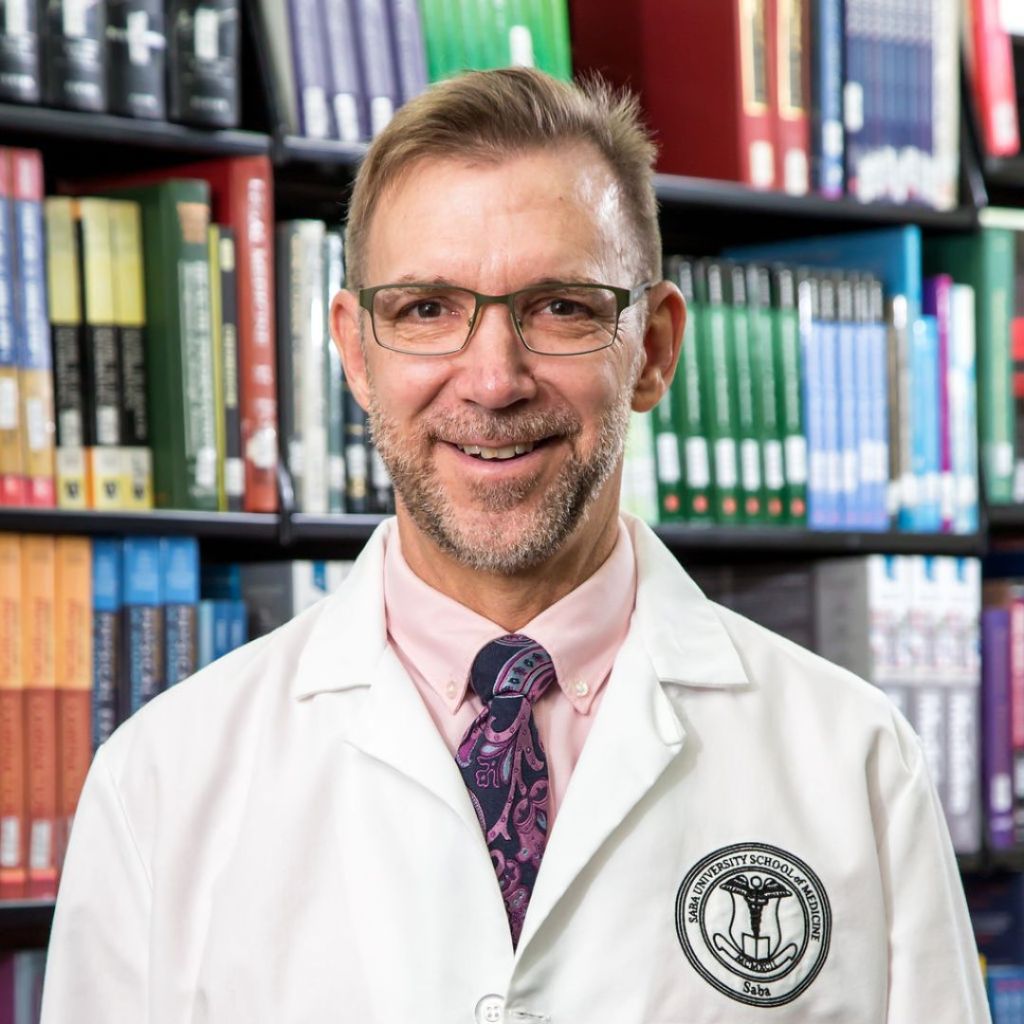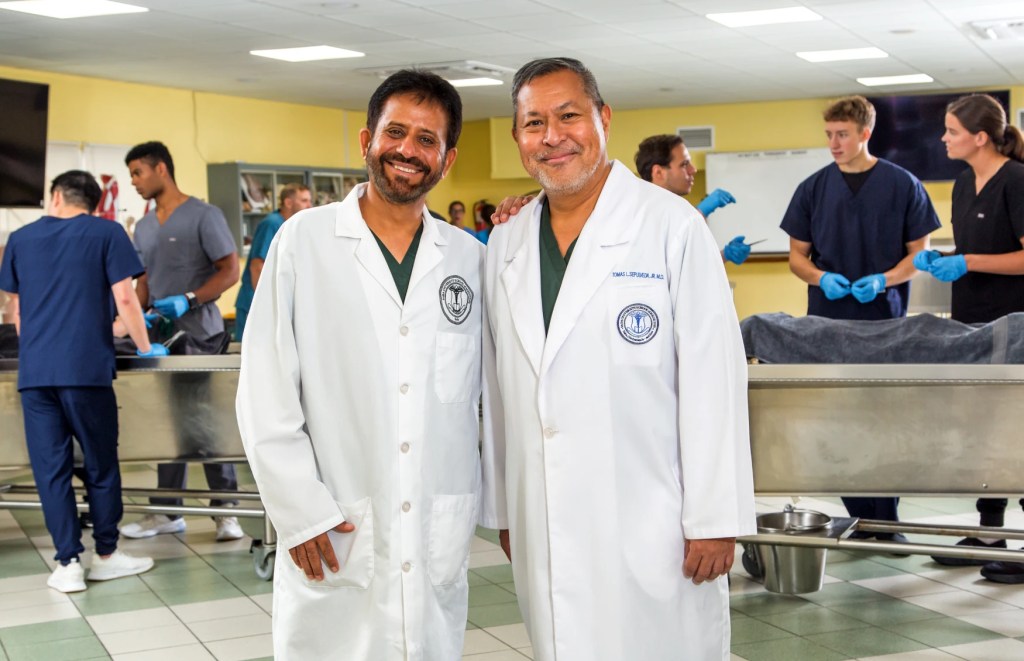
David C. Hyland
School/Division: Anatomy
Courses: Human Body Structure and Function
Get to know Saba University School of Medicine at an event!


Dr. David C. Hyland has had a long and successful career as a scholar-teacher and academic administrator. Hyland earned a Bachelor of Arts in anthropology from the University of Cincinnati and a doctorate in anthropology from the University of Pittsburgh. Early in his career, he taught human anatomy for the Physician Assistant program at Gannon University, Erie, PA, and served as a staff archaeologist at the Mercyhurst Archaeological Institute before joining the faculty of Mercyhurst University, earning tenure and progressing to full professor.
Dr. Hyland has taught over 4,000 students and published or presented more than 100 articles, book chapters, papers, reviews, and reports. He has also overseen and managed numerous labs—including the Organic Residues Analysis Facility and the R. L. Andrews Center for Perishables Analysis—the Department of Biology, the School of Health Professions and Public Health, and Mercyhurst North East, a branch campus, all at Mercyhurst University, Erie, PA.
As chair of the Department of Biology, he revamped the academic program, developed a Bachelor of Science degree, increased the number of majors from 25 to 155, and designed and oversaw the construction of the Donald and Judith Alstadt Laboratory for Molecular and Cellular Research, the Ecology Laboratory, and the Hirtzel Human Anatomy and Forensic Anthropology Laboratory.
As Vice President for Mercyhurst North East, Dr. Hyland oversaw and managed a $604,000 project to create the Hirtzel Maternity and Pediatric Simulation Learning Center, a $500,000 project to re-envision and renovate the Student Union and create a Help Hallway, and a $900,000 project to reinvigorate and overhaul the campus’s dining hall. Dr. Hyland also oversaw and, in conjunction with the Sisters of Mercy, championed the development of the unique Women With Children program designed to provide year-round, on-campus living assistance and an avenue for single mothers to earn a college degree. From the academic side of the house, Dr. Hyland played a central role in stabilizing and improving the ADN-Nursing program, conducting a thorough program review of the PN-Nursing and Massage Therapy programs, and spearheading a marketing study to inform the development of singular academic programs in the fields of math and information technology.
More recently, Dr. Hyland returned to the classroom and has focused on teaching anatomy to master’s students in Athletic Training and Physician Assistant Studies. Dr. Hyland is now proud to be joining Saba University School of Medicine, where he is looking forward to applying his deep anatomical experience to the education of tomorrow’s doctors.